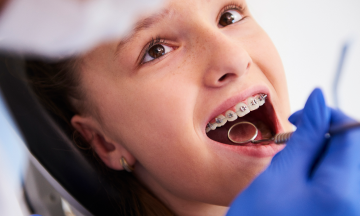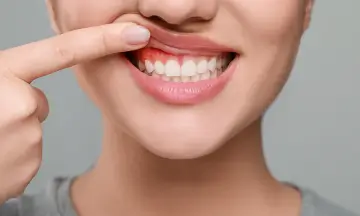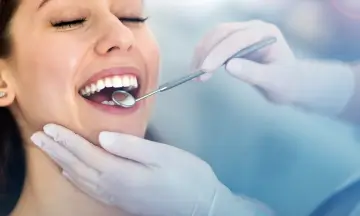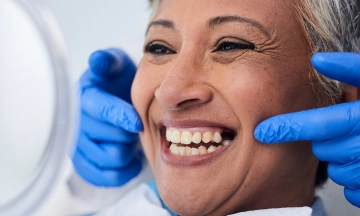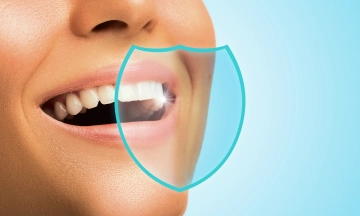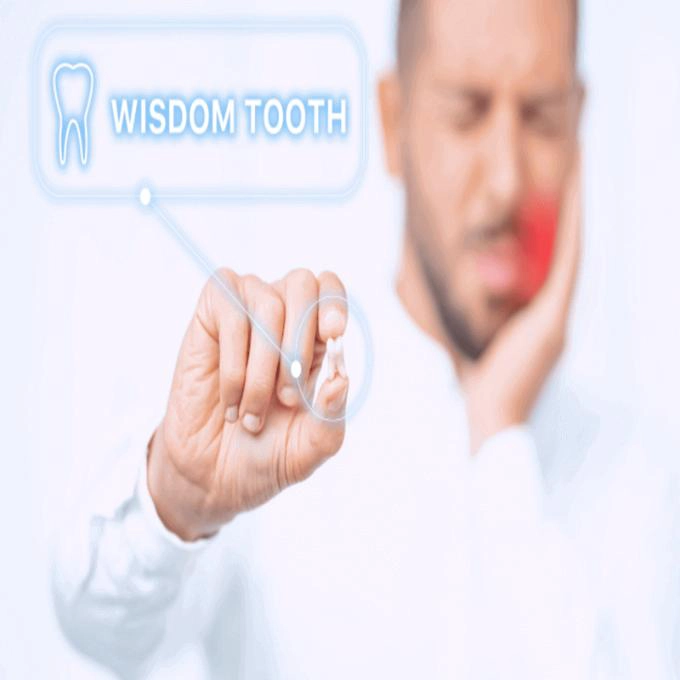
Are you advised for wisdom tooth removal? Worried about the procedure? We have you covered!
The four wisdom teeth or the molars, located at the far end of the jaw are the last molars. These teeth generally appear between the ages of 17 - 25. Did you know - some people never develop wisdom teeth?
Wisdom teeth are not always problematic, for some, these molars erupt normally — just as their other molars did and cause no problems.
When they erupt without any problems, healthy wisdom teeth can be a valuable asset to your mouth.
But most of the time, the wisdom tooth appears to be either crooked or impacted or one lying perpendicular to the teeth roots. Sometimes, even if erupted properly, the cavity can form on the innermost side of the tooth.
If a wisdom tooth is impacted or in other words doesn't have room to grow - there will be pain and discomfort which will eventually result in the development of infection or other dental problems. In most of these cases, you will be advised to extract or pull out the wisdom tooth. Wisdom tooth extraction will be done by a dentist or an oral surgeon
Why extract an impacted wisdom tooth?
While an impacted wisdom tooth may cause pain and infection, an impacted wisdom tooth may also:
-
It may grow irregular and cause dental problems; might grow
-
at an angle toward the next tooth (second molar)
-
at an angle toward the back of the mouth
-
at a right angle to the other teeth, as if the wisdom tooth is "lying down" within the jawbone
-
straight up and down like other teeth, but they're stuck inside the jawbone
-
Food can be stuck or trapped behind the wisdom tooth
-
Damage to a nearby tooth or surrounding bone
-
Infection or gum disease (periodontal disease)
-
Tooth decay in a partially erupted wisdom tooth
-
Development of cyst near the wisdom tooth
-
If you need to straighten teeth, there might be complications with orthodontic treatments to straighten other teeth
What happens during wisdom tooth removal?
The entire wisdom tooth removal procedure might take up to 45 mins to an hour more. In rare cases, it might go beyond the stated time depending on the complexity.
A brief overview on the wisdom tooth removal procedure -
-
Sedation: You might receive sedation through intravenous (IV) sedation or nitrous oxide (laughing gas). With nitrous oxide, you will be fitted with a mask that fits over your nose to inhale the sedative, allowing you to be awake but remain relaxed. IV will be administered through your arm, using a needle - a sedative throughout the surgery. IV sedation is generally considered the most comfortable option since you are unlikely to remember the procedure afterwards.
-
Numbing: Local anaesthesia is administered to numb the wisdom teeth and their surrounding tissues with a local anaesthetic.
-
Bone and Tissue removal: Any gum tissue that covers the area where the wisdom tooth is present is removed to access the tooth. A wisdom tooth that is impacted may be completely or partially covered by bone. If this is the case, the surgeon needs to remove the bone covering the tooth. Once the impacted wisdom tooth appears, a variety of surgical instruments are utilised to carefully release it from any connective tissue in the socket. To make removal easier, the surgeon may split the tooth into parts.
-
Tooth removal: Once the wisdom tooth is loose, the surgeon will use surgical instruments specially designed to fully remove the tooth.
After the Surgery
Once you are out of sedation and anaesthesia, you will be monitored. The dentist will give you gauze to bite down on in order to assist the blood clot in the area.
Once you are all stable, you will be allowed to go home. The doctor will inform you of the guidelines you need to follow for aftercare.
What does the wisdom tooth recovery phase look like?
The surgeon will advise you the following for the first 24 hours after the wisdom tooth surgery:
-
Do not use mouthwash
-
No alcohol consumption
-
Avoid rinsing your mouth vigorously
-
Avoid brushing your teeth next to the extraction site
-
Use a soft manual toothbrush
-
Avoid smoking during the healing process
There will be some pain, bleeding, and swelling for a few days post-surgery. You may not be able to open your mouth completely, try to consume food that is soft and easier to chew.
While you are healing, make sure to keep a watch on the below symptoms and contact your surgeon immediately -
-
Severe pain
-
Pain in the socket radiating down the neck or up the head
-
Visible bone in the extraction site
-
Foul smell or a bad taste in the mouth
-
Excessive bleeding
For any further queries, reach out to us!








